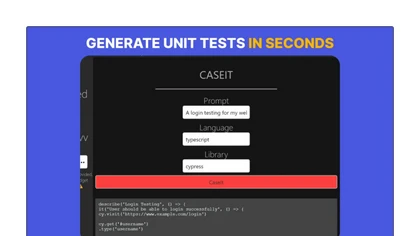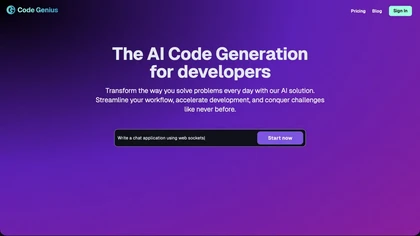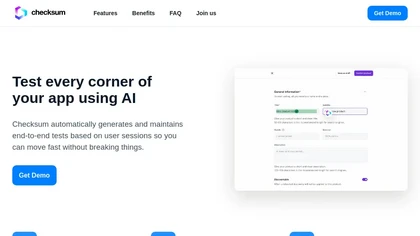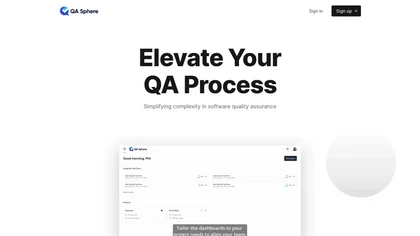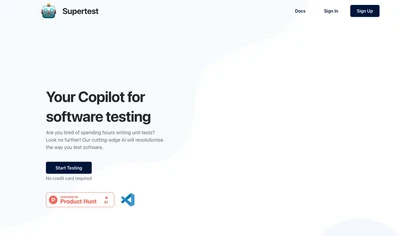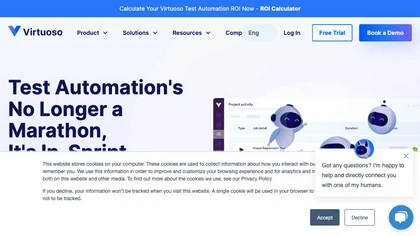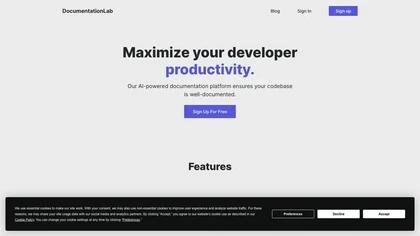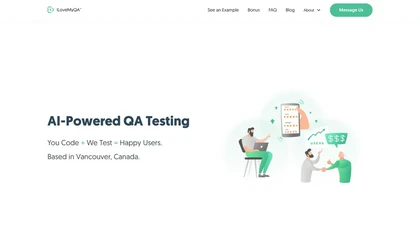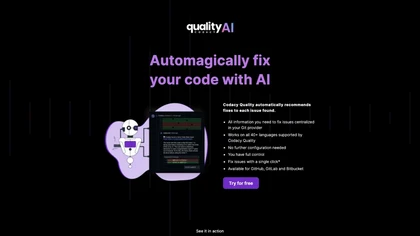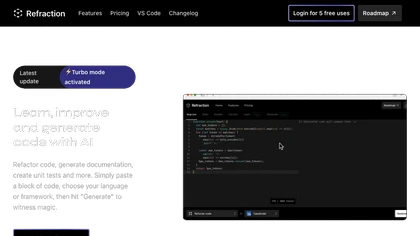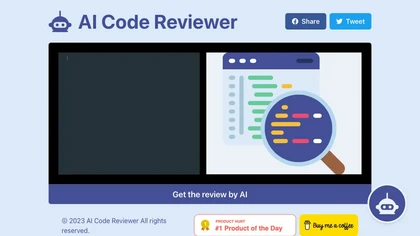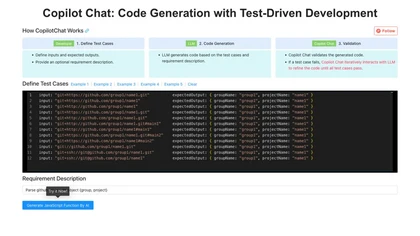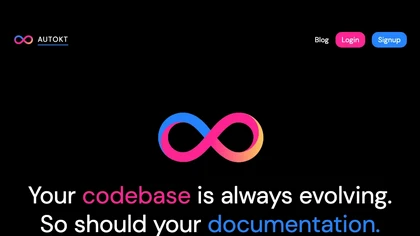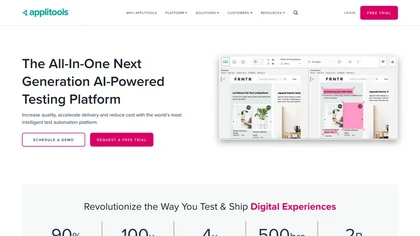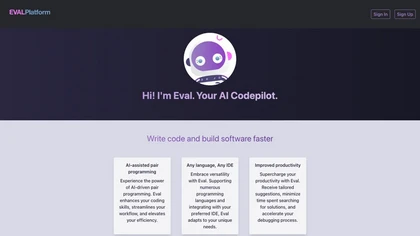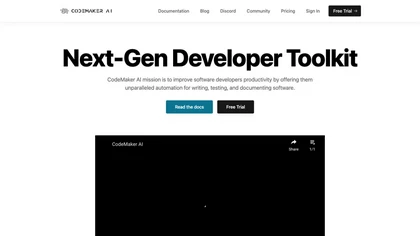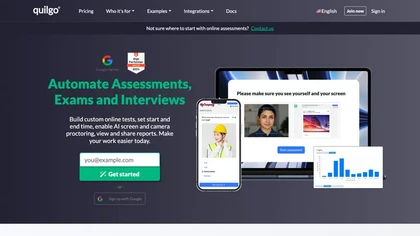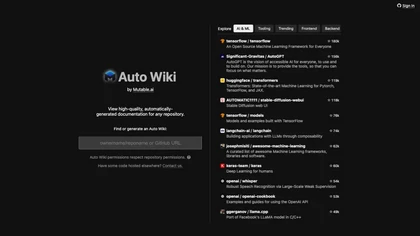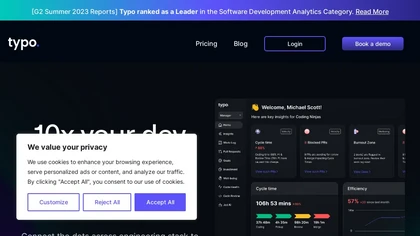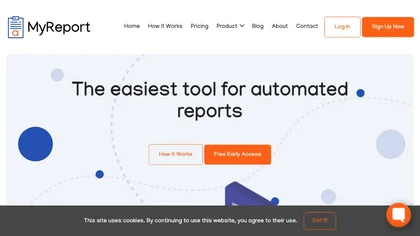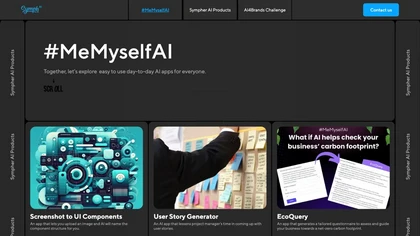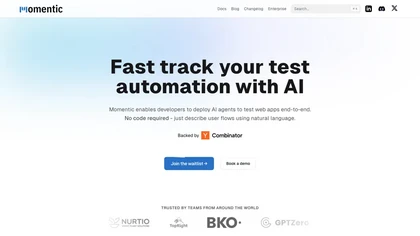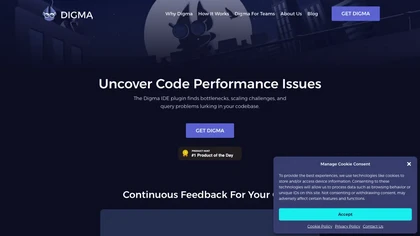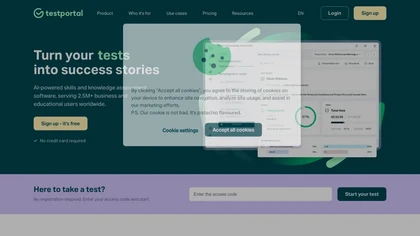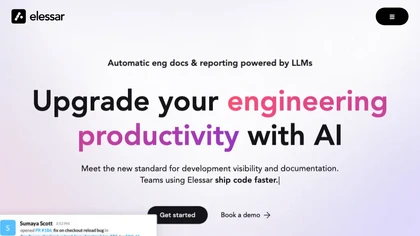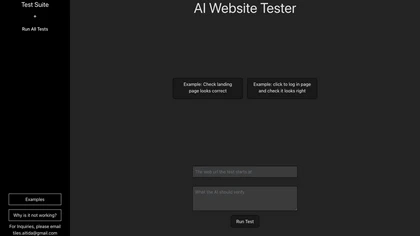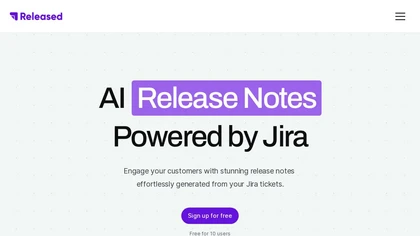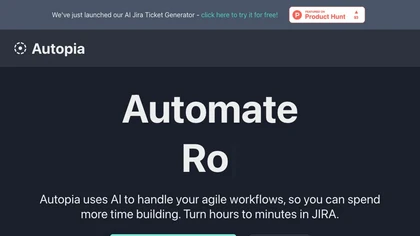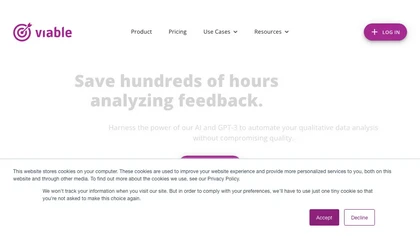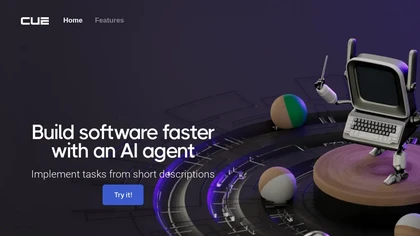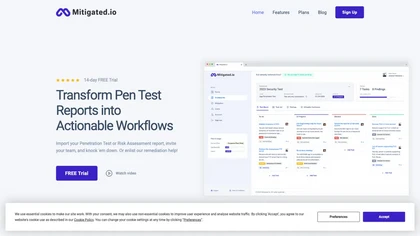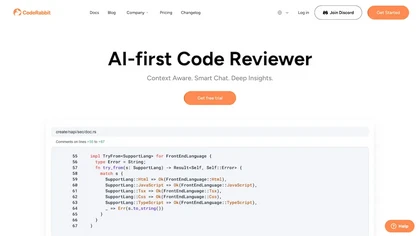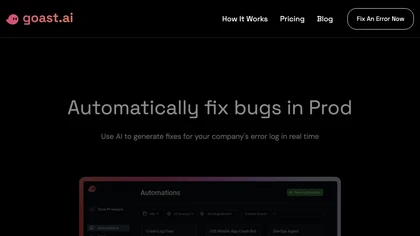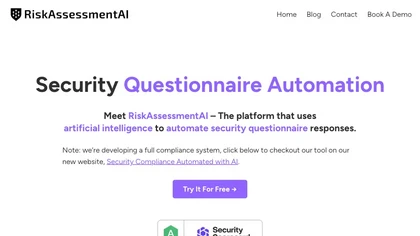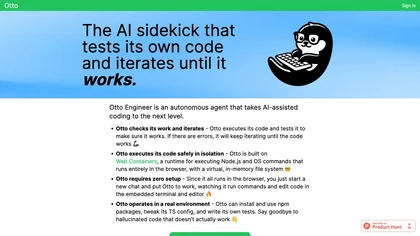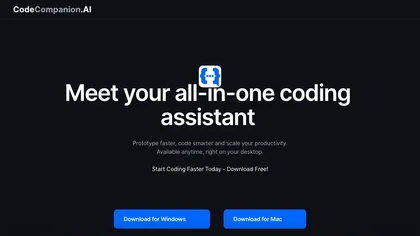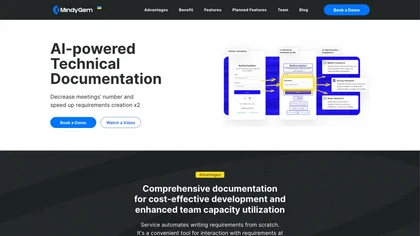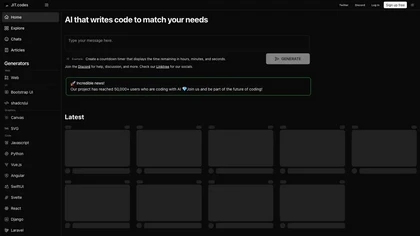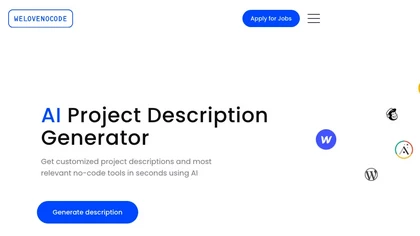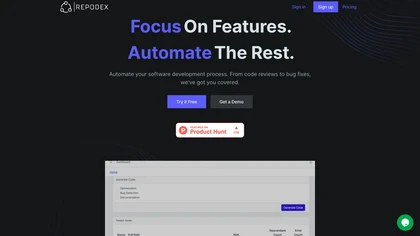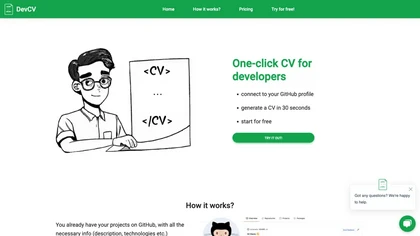AI use cases for Quality Assurance
Generative AI can be applied in various applications for quality assurance. Here are some examples to explore below for inspiration with AI tools to get you started with using AI in quality assurance.
🛠️ 70 AI tools for Quality Assurance
Explore a dynamic list of some of the most popular tools to get you started with various AI use cases and applications for Quality Assurance to streamline your workflows and productivity today.
Devzery features
- Automate API regression testing
- Catch regressions early
- AI-driven test executions without duplication
- Integrated with CI/CD pipelines
- Thorough testing coverage
CaseIt features
- Automatically generates test cases
- Code generation
- Desktop App
Autonoma features
- Create a new account
- Connect with your code
- Let AI do the rest
- Understand visually, from start to finish
- Spot code upgrades
Teste.ai features
- Comprehensive test scenario and case creation
- Wide range of test scenario generation
- AI-powered test planning and execution
- Automatic test case generation based on documentation
- Seamless collaboration through sharing of test plans and results
Webo.AI features
- Test case generation
- Test case maintenance
- Release cycle acceleration
- Test time reduction
- Defect reduction
Code Genius features
- Smart code suggestions
- Code optimization
- Unit test generation
- Workflow synchronization
- Effortless collaboration
Checksum.ai features
- Auto-generated tests
- Comprehensive coverage
- Automatic adaptation to code changes
- Easy integration within minutes
- Compatibility with open-source frameworks
🔥
Create your account, save tools & get personal recommendations
Receive a weekly digest of our handpicked top tools.
Unsubscribe anytime
QA Sphere features
- Digital checklist for managing tests
- Building a library of test cases
- Planning tests efficiently
- Organized test case library
- Integration with issue trackers
GeniePM features
- Product requirements
- User stories
- Use cases
Supertest AI features
- Unit test generation
- Integration with VS Code
- Auto-adding missing test IDs
- One-click unit test creation
- Automation of writing unit tests
SeniorDev features
- Automated codebase debt analysis
- 24/7 monitoring
- AI-powered automated test generation
- Automated documentation generation
- 3-step integration process
Carbonate features
- Test automation
- Ui testing
- Performance analysis
- Integration with php, node.js and python
- Sdk caching
Virtuoso QA features
- Natural language processing
- Machine learning
- Robot process automation
- Codeless test automation
- Self-healing capabilities
Documentationlab features
- Automatic documentation generation
- Real-time information and relevant answers
- Integrated version control
- Import and export documentation
- Free trial option
Codeball features
- Find bugs
- Improve code quality
- Ship faster with higher confidence
- Recognize risky code changes
- Reduce review time by up to 60%
ContextQA 2.0 features
- UI Testing
- Mobile Testing
- API Testing
- Cross Browser Testing
- Accessibility Testing
ilovemyqa.com features
- AI-powered QA testing
- Real device testing on various platforms
- Identification of critical and annoying bugs
- Enhancing overall quality and user experience
- Cost and management efficiency
Fine features
- Automating tedious tasks
- Seamless integration with the team
- Custom-built agents
- Autonomously understanding business requirements
- Code insights and analysis
Codacy features
- Automatic code issue recommendations
- Support for over 40 programming languages
- Integration with Git providers like GitHub, GitLab, and Bitbucket
- Fixing issues with a single click
- No complex configurations required
Airtest features
- Refactor code
- Generate documentation
- Create unit tests
AI Code Reviewer features
- Automatically analyzing code for syntax errors and security vulnerabilities
- Suggesting improvements and best practices for code quality
- Identifying potential bugs and areas for optimization
- Generating automated test cases to ensure correctness of the code
- Tracking code changes and providing historical reports on code quality
Page Canary features
- Ssl certificate expiry alerts
- Custom web page audits
- Monitoring website functionality
- Accessibility checks
- Compliance with security best practices
CopilotChat features
- Test-driven development support
- Code generation based on test cases
- Validation services
- Efficient test case definition
- Streamlining code generation
AutoKT features
- Automatically syncs and updates documentation
- Generates comprehensive documentation files
- Feedback loop for approving and reviewing updated documentation
- Assistant that learns and understands code
- Comprehensive document editor with integrated generative ai
Applitools Eyes features
- AI-powered test automation
- Revolutionizes digital experience testing
- 90% increase in test creation speed
- 100x growth in test coverage
- Trusted by global brands
Eval features
- AI pair programming
- AI unit test writing
- Code documentation
- Code explanation and analysis
- IDE integration
CodeMaker AI features
- Context-aware code completion
- Context-aware code generation
- Hands-free documentation generation
- Integration with IDEs like JetBrains and Visual Studio Code
- Batch processing operations at unparalleled scale
Quilgo features
- Automating assessments
- AI-powered screen and camera proctoring
- Secure online testing
- Flexible quiz-building capabilities
- Comprehensive reporting functionalities
Auto Wiki features
- Automatic documentation generation
- Integrates with repository permissions
- Simplifies workflow for various tech domains
- Support for building accessible AI models
- Focus on providing essential tools in the AI landscape
Typo features
- Measure effort and cost spent on innovation
- Technical debt
- Roadmap
- Identify sdlc metrics that impact development efficiency
- Remove blockers in real-time
MyReport features
- Automate data collection
- Automate citation
- Description of report topic
- Review of report
- Send report
CodeDefender features
- Support for various IDEs
- Deployment flexibility (cloud or on-premise)
- Advanced data security through encryption methods
- Code security analysis, performance evaluation, and code correctness checking
- Support for multiple programming languages, code conversion, and documentation generation
CodeMate features
- Autocorrecting errors
- Debugging
- Optimizing code
- Code review
- Language support
Kodezi features
- Code generation
- Bug fixes
AppGen features
- Automatic generation of diverse test scenarios
- Creation of both happy and unhappy paths test scenarios
- Automated analysis and caption generation for images
- Enhancement of spreadsheet functionality in Google Sheets and Microsoft Excel
- Introduction of new functions and formulas to streamline tasks in spreadsheet programs
Sweep AI features
- Automating tasks such as writing unit tests, fixing bugs, and refactoring code
- Legacy code maintenance and tech debt cleanup
- Generating repository-level commands
- Making code more modular
- Automating repetitive tasks
AutoCode Pro features
- Idea to code
- Code generation
- Chrome extensions
- Web apps
- Mobile apps
Screenwriter features
- Web test automation
- AI agents deployment for end-to-end testing
- User flows description using natural language
- Comparison of browser automation frameworks
- Test creation and debugging without codebase access
Kodus features
- Team performance analysis
- Improvement suggestions for increased productivity
- Automated management tasks
- Weekly reports and metrics
- Automation for enhancing team productivity
Digma.ai features
- Integrates with IDEs
- Highlights problematic code areas
- Provides critical analytics on code usage and performance
- Enhanced observability for issue prioritization
- Facilitates smoother development process
Aptori features
- API security testing
- Business logic testing
- Semantic reasoning technology
- AI-driven test automation
- Continuous risk assessment
testportal.net features
- AI question generator
- Detailed reporting options
- Insights and analytics for real-time inputs
- Support for integrations and APIs
- Automated feedback and grading
Elessar features
- Automatic generation of standardized pull request changelogs
- Automatic documentation of progress in notion
- Temporary channels per pull request in slack
- Search and understanding of changes using vs code extension
- Integration with issue tracking tools such as linear
Bito features
- Code editing
- Debugging
- Testing
- Documentation
- Collaboration
Aitida Test Suite features
- Automated testing of websites
- Running various test examples
- Checking landing page accuracy
- Verifying functionality of specific elements like log-in pages
- Ensuring smooth and error-free website operation
Released
5Released features
- Compile changelists
- Create announcements with rich content blocks
- Seamless integration into website
- Security and scalability
Autopia features
- Ticket generation
- Progress reports
- Roadmaps
- Natural language commands
Pythagora features
- Automated integration testing
- Analysis of a server
- Easy-to-use workflow
- 80% code coverage in 30 minutes
- Captures and restores server states
- Supports the use of various apis
viable features
- Automated qualitative data analysis
- Customer feedback understanding
- Nlp technology
- Feedback analysis
Cue features
- Task assistance
- Module implementation
- Code refactoring
- Test writing efficiency
- Background task handling
Pentest Copilot features
- Automated Pentesting
- Fine tuned AI for security tasks
- AI & human collaboration
- Seamless json integration
- Constrained programming
commit.dev features
- Magic Matching
- Magic Apply
- AI-Customized Applications
- Comprehensive Tracker
- Email the CEO - Coming Soon!
CodiumAI features
- Code integration
- Generating non-trivial tests
- Helping developers write reliable code
- Free vs code extension/jetbrains plugin
- Supports python, javascript/typescript languages with java soon to come
Mitigated.io features
- Transforms penetration test risk assessment reports into actionable workflows
- Leverages collaborative workspaces for task assignment and progress tracking
- Provides AI-enriched mitigation guidance for security vulnerabilities
- Supports easy import of assessment reports
- Enables users to enlist security mitigation services directly from the dashboard
Coderabbit features
- Code reviews
- Task Prioritization
- Issue validation
- PR summarization
- Code insights and explanation
Docuo
4.9Docuo features
- Create a modern customer-facing docs site
- Support various document types
- Link Github repository and leverage MDX
- Host multiple distinct sets of docs
- Provide rich components and customized styling
- Support data analytics and SEO
goastVS features
- Error data ingestion
- Automated fix generation
- Github integration
Code Genie AI features
- Instant analysis and feedback with one click
- Full smart contract audits within seconds
- Detection and fixing of bugs and issues overlooked by humans
- Examination and fortification against cybersecurity attacks
- Simulation of exploit scenarios for vulnerability prevention
RiskAssessmentAI features
- Automate security questionnaire responses
- Scan documentation
- Build knowledge base
- Support various assessment formats
- Collaboration between teams
Otto Engineer features
- Code testing and iteration
- Safe isolation environment using web containers
- Runtime operation entirely in the browser
- Interactive chat interface for code execution and editing
- Support for npm package installation, TypeScript configurations adjustment, and test writing
CodeCompanion features
- Natural language search
- Code generation
- Automation
- Multiple programming languages support
- Privacy and security
MindyGem features
- Automating the writing of technical requirements
- Automatically generating user stories
- User-friendly interface for team alignment
- Creating tickets directly from the tool
- Managing test cases for project management
Jit Codes features
- Language support
- Code generation
- Functionality snippets
- Tailored solutions
- Streamlined coding process
Process features
- AI-powered task generation
- Automated task creation process
- Task generation based on project requirements and deadlines
- Advanced security measures for data privacy
- Workflow simplification
Project Description Generator features
- Generate project descriptions
- Provide technical specifications
- Match users with no-code experts
- Suggest the most suitable tool for projects
- Access a database of over 211k no-code products and platforms
- Have an in-house team of over 50k no-code talents
- Offer free consultations
- Tutorials and help centers
- Resources for various categories
Hacker AI
4.6Hacker AI features
- Source code scanning
- Security weakness identification
- Potential exploitation detection
- Hacker targeting prediction
- Malicious actor analysis
unitQ GPT features
- Aggregates feedback from various sources
- Automates categorization of feedback
- Evaluates sentiment of feedback
- Delivers actionable insights without manual effort
- Detects urgent issues sooner
Repodex features
- Automated codebase scanning for identifying bugs
- Real-time Slack integration for instant updates on detected issues
- Automated pull requests for generating ready-to-review code changes
- AI-powered code analysis for secure and privacy-focused bug detection
- User-friendly web app interface for reviewing detected issues and proposed solutions
DevCV features
- Automated resume creation
- GitHub profile integration
- AI-powered CV generation
- Project descriptions inclusion
- Instant sharing feature

